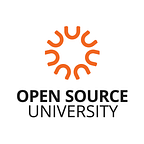Next Block Discussion: Are utility tokens dead?
The latest iteration of the NEXT BLOCK Conference on April 12th addressed critical questions around the expected rise of security tokens, hurdles towards crypto’s mass adoption and the future of blockchain technology as we head into 2019. And YES — it featured OS.University R&D project as part of the panel discussion on utility tokens!
Hristian Daskalov — project lead of OS.UNIVERSITY as a co-founding member of the Center for Shared Science & Business — a research institute at the Technical University of Sofia, gave his expert insights on the topic of the panel discussion — “Are Utility Tokens Dead or is there a Future for Them?”. His co-panelists were among the most prominent members of the blockchain community in CEE: Pavlo Tanasyuk, Founder of Spacebit and CEO of BlockVerify; Yael Tamar, CMO and Partner at Solidblock; Walter Komarek ,CEO at Yom Capital Angelinvestment. The panel was chaired by Motti Peer, Co-CEO of Blonde 2.0, Award-winning Global PR Agency.
Among the questions discussed were:
- What needs to happen in order to revive utility tokens?
- What was the media contribution or role in bringing utility tokens to what they are today?
- If an organization truly wants to issue a utility token, how could they effectively avoid an increase in value over time that would define it actually as a security token, via the Howey test? In light of such cases, can there ever really be a pure utility token? How?
- All these billions were raised. Where are the products? Why aren’t we hearing about an actual utility for all these tokens people bought?
- People who argue utility tokens are dead tend to then say that STOs are the real deal. But we find ourselves in a similar predicament now with STOs… why isn’t it catching on?
“Utility tokens are not dead and their levels of adoption will only increase as they are the true digital representation of the concept of social money, which has been attempted to be implemented across the world for centuries - in the form of various ‘local currency’ and shared value projects. Utility tokens are the key to monetizing social capital in the era of the sharing economy. Our academia-led project — OS.UNIVERSITY was among the first research initiatives globally to be crypto-crowdfunded and many other academic and community-led innovations may follow its path in order to retain their independence and openness. Issuing and distributing a blockchain-based token, which has a utility for a certain group of collaborators, based on the token’s exchange within their social/professional network (e.g. developers, contributing in an opensource project or researchers, publishing in an open journal) is not only a way to crowdfund one such project, but also to ensure higher levers of engagement across all of the stakeholders and maintain project sustainability over the long run through incentivization of participation in project’s operations and governance. Non of this gets close to promoting the utility token as an investment vehicle, which is actually a good thing — real, useful utility tokens are designed to be spent, not kept”.
This was the point of view shared by our colleague — Hristian, an award-winning researcher, author of the book “Academia 4.0 — University on the Blockchain” with experience as a consultant to the Bulgarian Ministry of Economy on the National Research & Innovation Instrument for Smart Specialization (S3 Strategy) and the Operational Program for Smart Growth through Education & Science (OP NOIR), a 500-million euro public investment program. You can find more on his research on SildeShare.
